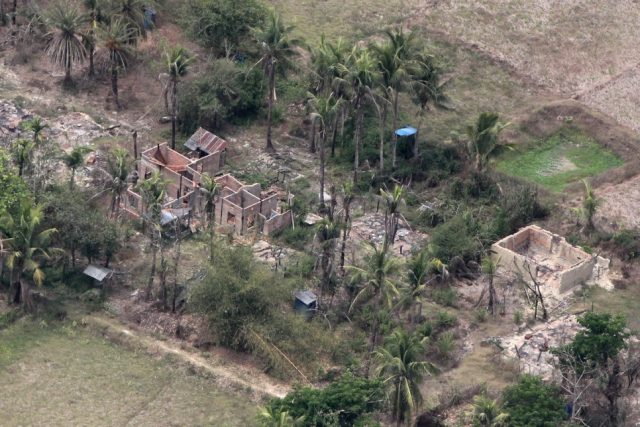UNHCR and UNDP Urge Tangible Progress to Improve Conditions in Myanmar’s Rakhine State


An aerial view shows burned down villages once inhabited by the Rohingya in northern Rakhine state, Myanmar. © UNHCR/Michelle Nichols
Two months since the signing of the tripartite Memorandum of Understanding (MoU) between UNHCR, UNDP, and the Government of Myanmar, UNHCR, the UN refugee agency, and UNDP, the UN’s development agency, are both urging Myanmar authorities to make tangible progress to improve conditions in Rakhine State. The Myanmar government’s willingness to take the lead in the implementation of this agreement is critical to creating conditions conducive for the voluntary, safe, dignified, and sustainable return of Rohingya refugees.
The government has taken some encouraging steps since the MoU was signed on 6 June, including the formation of a tripartite Technical Working Group to support the implementation of the MoU; enabling an important visit by senior UNHCR and UNDP officials to the northern part of Rakhine State in early July; and facilitating an initial joint field visit to Rakhine State by the Technical Working Group mid-July. However, substantial progress is urgently needed in three key areas covered by the MoU: granting effective access in Rakhine State; ensuring freedom of movement for all communities; and addressing the root causes of the crisis.
First, effective access requires being able to consult, freely and independently and on a day-to-day basis, with communities in Rakhine State about their needs. It also necessitates a predictable, flexible and simplified procedure to approve travel authorizations within a reasonable period of time for UNHCR and UNDP staff to go to the areas where these communities reside. These are basic criteria for enabling us to carry out our work in the areas of Rakhine State covered by the MoU. On 14 June, UNHCR and UNDP submitted travel authorization requests for international staff to be based in Maungdaw and to start their work in the northern part of Rakhine State, and are waiting for a response from the Government to these requests.
Second, freedom of movement, as well as increased public services delivery, are crucial for all communities in Rakhine State, irrespective of religion, ethnicity or citizenship status. During the visit by senior UNHCR and UNDP officials in early July, it was evident that the remaining communities in the northern part of Rakhine State continue to live in fear of one another. All communities have been affected by the violence, but the remaining Rohingya communities are affected most of all. In particular, local orders severely restrict their freedom of movement. These restrictions prevent Rohingya communities from being able to work, go to school, and access healthcare. They also prevent them from being able to interact with friends, family, and other communities in Rakhine State. Freedom to move was one of the most frequent requests expressed by Rohingya communities during the UNHCR-UNDP visit.
Third, it is fundamental to address the root causes of the crisis. The most sobering feature of northern areas of Rakhine State today is the empty space where villages used to stand. Unused and empty paddy fields are a stark reminder of the missing population who used to cultivate them. The signing of the tripartite MoU with the Government of Myanmar will not, in itself, allow Rohingya refugees to return home to Myanmar. In line with the MoU, root causes need to be addressed by implementing the recommendations of the Advisory Commission on Rakhine State, including a clear, voluntary and equal pathway to citizenship for all eligible individuals.
Confidence building measures need to take root, starting with facilitating access for UNHCR and UNDP to commence needs assessment visits to identify quick-impact projects in priority village tracts that have been agreed with the Government.
UNHCR together with UNDP remains prepared to support Myanmar in improving conditions in Rakhine State and operationalizing the MoU.
For more information on this topic, please contact:
For UNHCR :
- In Yangon, Paul Vrieze, [email protected], +95 944 803 4427
- In Geneva, Andrej Mahecic, [email protected], +41 79 642 9709
For UNDP:
- In Yangon : Stanislav Saling, [email protected], +95 9 42651 9871
- In New York: Adam Cathro, [email protected], +1 (212) 906-5326
View this original press release HERE.
၎
င
၎
၎

